It is imperative voters renew levy
The current operating levy generates funding for students to learn, paying for materials, teachers, and technology. The levy also keeps class sizes relatively small so students can have close relationships with classmates and teachers. If a new levy is not chosen Nov. 2, class sizes will see growth of up to 40 students.
On election day Nov. 2, district taxpayers will be presented with two questions: an operational levy to continue funding for quality learning to district students and a technology levy to provide new technology to students and teachers. Renewing the operational levy is crucial to district funding and student learning.
If the operational levy is renewed, it will retain teachers, support staff and maintain existing programs and district services. If the operational levy is not renewed, class sizes will increase, and elective classes, specialized programs, and arts and athletics will see funding cuts.
The operational levy currently contributes 10.4% to the district’s annual budget, addressing a $600 per-pupil funding gap in state funding. Question one on the ballot is a replacement levy, a renewal of the $12 million current levy, plus a slight increase of $2.7 million, to address inflation and minimize future budget cuts over the 10 year period the levy will be in place for.
“With the levy, we have just under a $125 million per year budget, and 69% of our budget comes from state aids and credits, 26% from local property taxes, 2% federal aid, 3% other, and our expiring levy is only 10.4% of the general fund, but a lot of its a very important part of our budget because it helps provide staffing and programming and supports,” District Superintendent Malinda Lansfeldt said.
A technology levy, the second question on the ballot, will provide the district with $4.7 million in funding to improve upon current technology and increase students’ access to technology. If taxpayers say yes to the technology levy, then a one-to-one learning device concept will be implemented, along with raising the current level of the technology infrastructure and freeing $2.8 million from the general fund.
School board chair Beverly Petrie explained that during the pandemic, in order to be able to give students devices to learn at home, the district had to take the cast-off devices from nearby school districts. That’s the only way that they could make distance learning work last year. With a technology levy, the level of technology infrastructure will be up to par with what surrounding districts already have.
“The majority of all of the metro area districts already have a technology levy in place, and right now, we know because of the pandemic how important technology has been in the past two years for students and teachers,” Lansfeldt added.
If the operating levy is not renewed, major cuts will be made across the district. Approximately 75% of operating expenses go to salaries, so with a funding cut, teachers would be laid off, which could increase class sizes to up to 40 students. Bussing could also see route cuts, only servicing the state requirement of two miles outside of each school.
If the first question does not pass, $12 million would be cut from the annual budget. “That’s 10% of our budget. There’s really no way to keep those cuts away from the classroom. So just for comparison’s sake, we could get rid of every single administrator in the entire district plus all of the principals, and we wouldn’t even be halfway toward plugging a $12 million gap,” Petrie explained.
If an operational levy is not approved for the 2022-2023 school year, the district would face a $12 million budget cut. If this referendum did not pass on Nov. 2, the school board would start looking at a cut-list for the upcoming year. To renew the levy for years beyond 2022-2023, the district would have to go to the state and ask for permission for a special election at a later time.
Options for a special election include, “a mail-in only election next February or August of 2022, or the next time we’re gonna have another general election with polls where people could go into vote would be next November 2022, which means we would still need to make budget reductions for a minimum of a year. If this does not pass we would still have to cut 12 million for a year,” Lansfeldt said.
If the levy fails, students will be impacted in many ways, through higher class sizes due to a lack of teachers, out-of-date classroom devices, and lack of programs like the Gifted And Talented Education (GATE) program.
“I do believe that there is not going to be a kid, a family, or a teacher, that wouldn’t feel the impact of this levy if it didn’t pass. Just by pure class sizes, that’s one of my biggest concerns. Our classrooms are growing more diverse, and more complex. We have kids with a wide variety of living and learning experiences, and that requires a lot of attention and a lot of work. We’re increasing those class sizes by say, 10 kids in a class. Those contact points with kids are going to be fewer. We’re going to have less bandwidth, less time. The need is just going to be so great that I worry about what is the impact on our social and emotional learning and teaching and the impact on academics. That’s my biggest concern,” said Brandon Auge, EL teacher and department lead at Lake Elmo Elementary School.
“Not one kid or teacher will be insulated from the impact of a failed Levy. I think now more than ever, it’s really important that we…rally as a community to take care of our kids and…ensure we can…continue to deliver, you know, a great education for our kids,” Auge added.
Question one, the replacement levy will maintain quality learning and on a $350,000 home in the district, cost homeowners 17 cents more per month. The technology levy on a $350,000 home is $11.50 more per month on a home.
related title=”” stories=”100849,97427″ align=”left” background=”on” background_color=”#ffffff” border=”all” border_color=”#888888″ border_size=”5px” shadow=”on”]
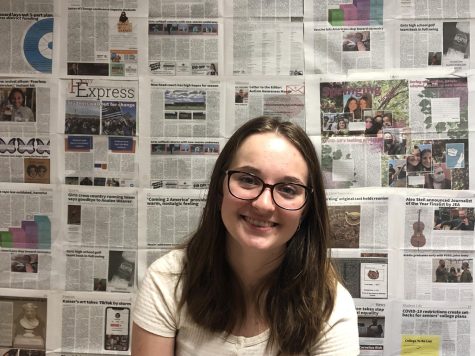
Hi, My name is Nissa Wilcox and I am a senior layout editor in chief this year. I am on the high school swim and dive team and the high school synchronized...


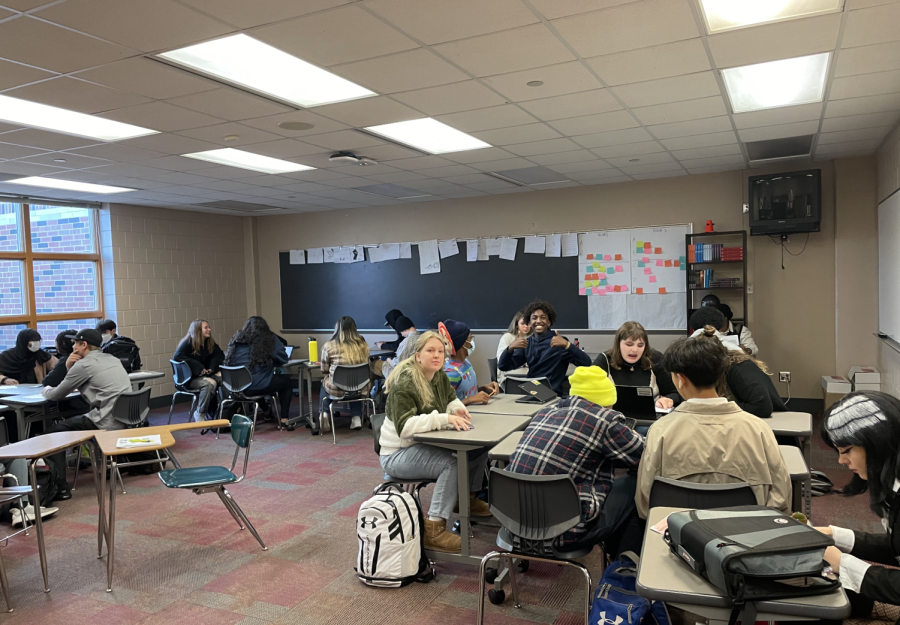
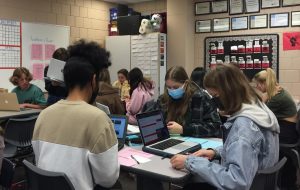
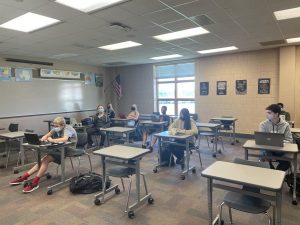



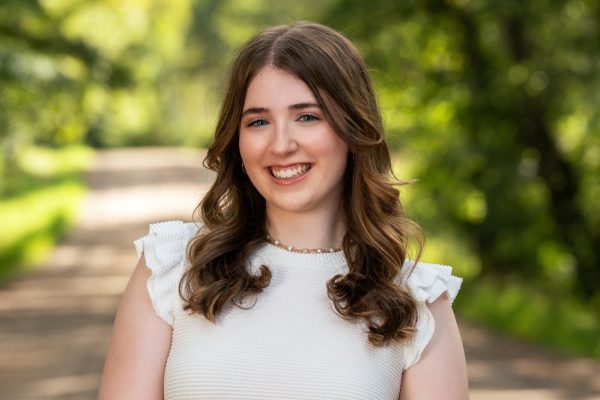



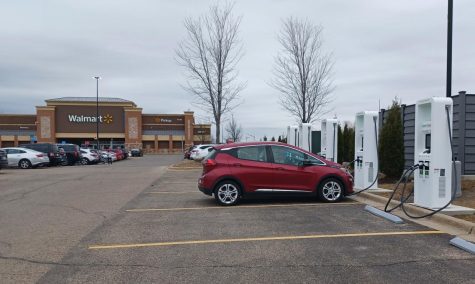
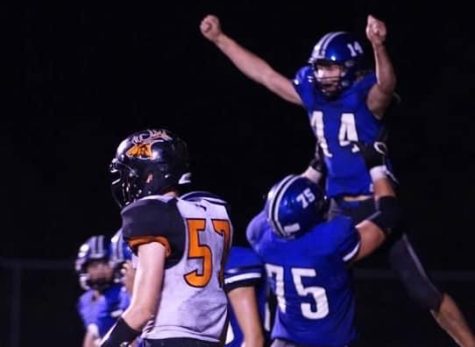
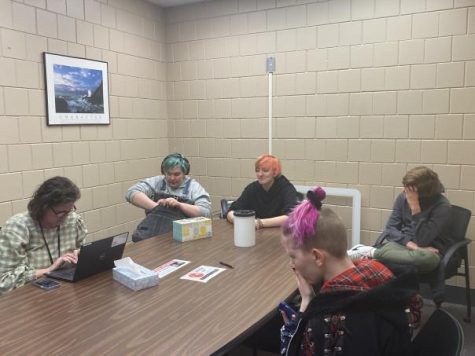
Bella Godfrey • Dec 19, 2021 at 9:13 pm
It is obvious that you did in depth research and talked to knowlageable sources. Nice engaging story!